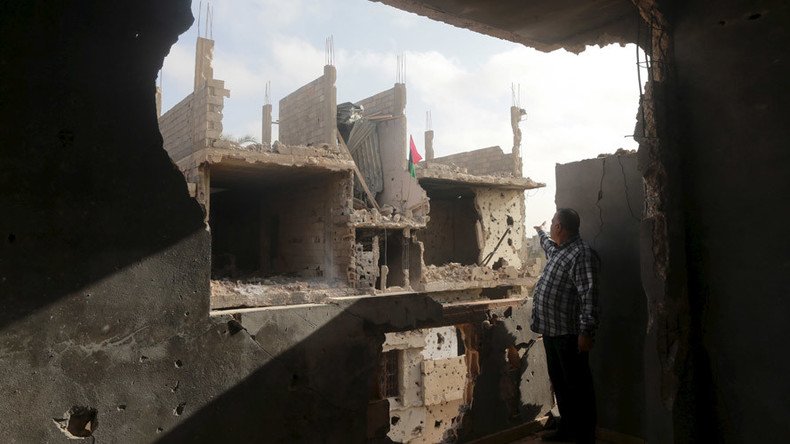‘Worst mistake as president’: Obama admits he had no plan after Libya regime change

Failing to plan for the aftermath of the US-led military intervention in Libya was President Barack Obama’s worst mistake during the eight years in the White House, Obama himself confessed to US media.
When asked in a quick Q&A preview for an interview with Fox News Sunday what his “worst mistake” as a president had been, the US leader answered: “Probably failing to plan for the day after what I think was the right thing to do in intervening in Libya.”
A month ago, Obama admitted that Libya has been a “mess” since the fall of Muammar Gaddafi, but blamed UK Prime Minister David Cameron and other European leaders for the chaos.
Given Libya’s proximity to the European continent, he expected his counterparts to invest more in the follow-up to the military campaign, the US President claimed.
'S**t show': Obama blames UK & other European states for post-Gaddafi Libya 'mess' https://t.co/wLirmVGQXQpic.twitter.com/1yFcdToxji
— RT (@RT_com) March 11, 2016
In March of 2011, the UN Security Council (UNSC) adopted a resolution on Libya authorizing the international community to “take all necessary measures” to protect the civilian population. The US-led coalition then proceeded to intensively bomb the Libyan army, eventually toppling the country’s leader, Gaddafi, who was killed in October of the same year.
The role of Hillary Clinton in the White House’s decision to go to war in Libya has recently been exposed, with former US Secretary of Defense Robert Gates claiming that the input of the then Secretary of State had played a major role in influencing President Obama’s decision.
READ MORE: ‘No doubt’ US drone strikes killed civilians, Obama says
With no follow-up plan coming from the intervening countries after the Gaddafi regime was overthrown, the failed state descended into chaos as rival governments and armed groups fought for control, providing Islamic State (IS, formerly ISIS/ISIL) and other extremist groups with the opportunity to gain a foothold in the oil-rich country. Libya is now a key operating base for IS terrorists, and other local militant groups control large parts of the country as well.
Some 400,000 people have been displaced as a result of the intervention, according to UN estimates.
Russia and many of its allies around the world found the months-long NATO bombing campaign unacceptable, saying that UN Resolution 1973 spoke only of establishing a no-fly zone to guarantee civilian security, and was not a green light to bring about regime change.













